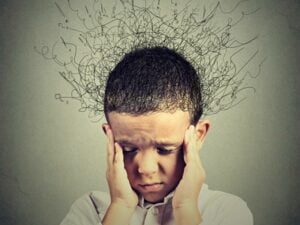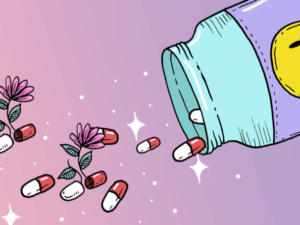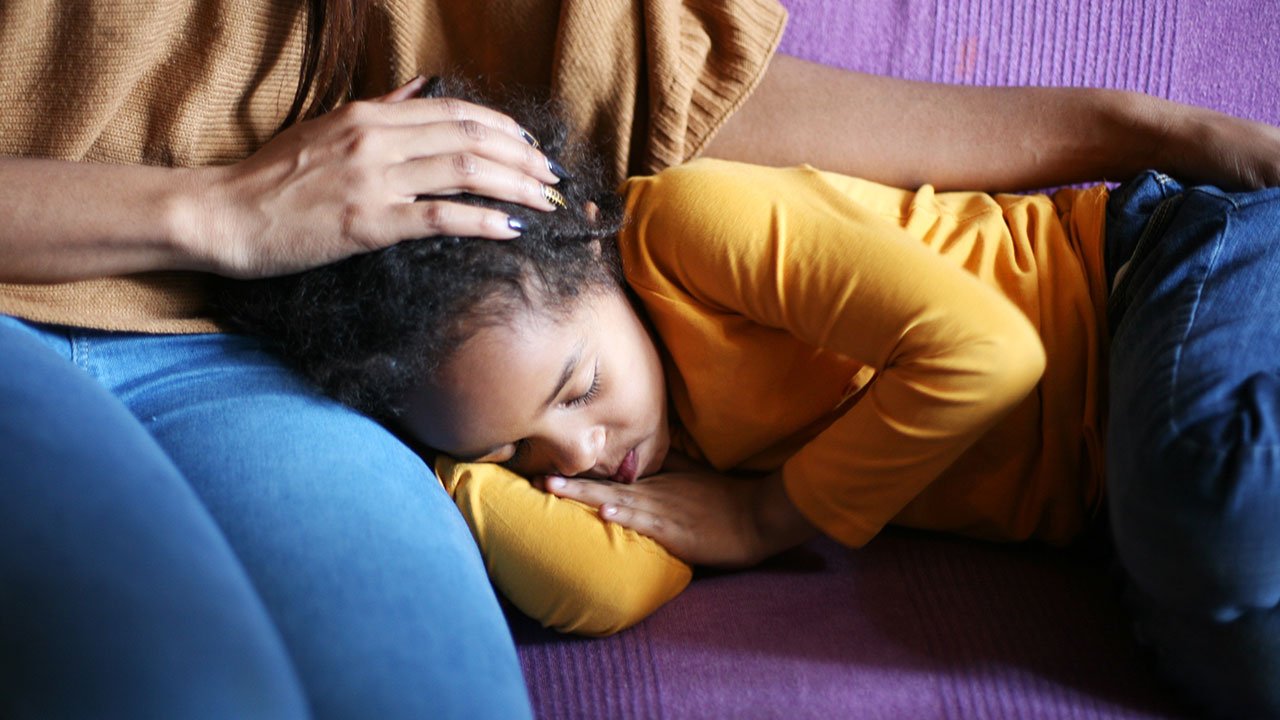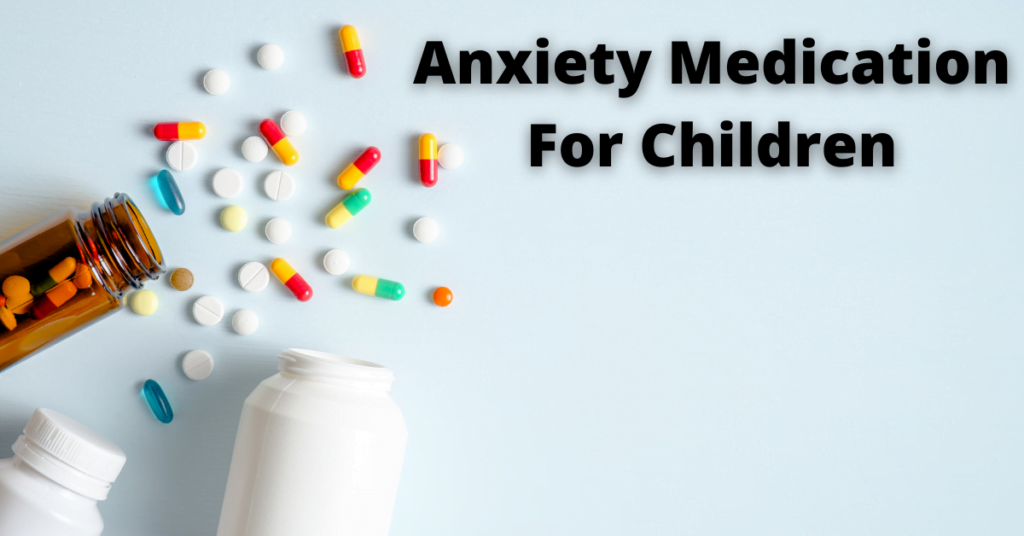Contents
What Do You Mean By Child’s Anxiety?
 Anxiety is the nervous feeling of worry, fear, and dread. It can be an unpleasant experience that can make it hard to control your thoughts and behavior. There are many different types of anxiety disorders that children may face. These are including social phobia (fear of others), specific phobias (fears such as spiders or dogs), and generalized anxiety disorder (constant worrying). There are different ways such as anxiety medication for children, therapy to treat anxiety in children.
Anxiety is the nervous feeling of worry, fear, and dread. It can be an unpleasant experience that can make it hard to control your thoughts and behavior. There are many different types of anxiety disorders that children may face. These are including social phobia (fear of others), specific phobias (fears such as spiders or dogs), and generalized anxiety disorder (constant worrying). There are different ways such as anxiety medication for children, therapy to treat anxiety in children.
Anxiety is not always a bad thing. In fact, it’s healthy to experience some level of fear or apprehension. This is when faced with new challenges such as public speaking, the first day at school, etc. However, if your child has an anxiety disorder they may find themselves experiencing intense fears. These fears interfere with their life on a regular basis. This causes them significant distress and discomfort.
How Does Your Child Show Signs Of Anxiety?
Your child might:
- Avoid certain activities, places, or people they fear.
- Avoid studying in school for tests and exams
- Experience physical symptoms such as nausea, stomach aches, headaches, etc., before an event that causes them anxiety.
How To Diagnose Anxiety In Child?
Anxiety disorders are very common in children and teens. For example, about 20% of kids have a specific phobia before age 18. In addition to looking at the types of fears your child has experienced, the doctor will also want to know if they show any signs or symptoms such as avoiding certain places or people because it triggers their fear response. They may perform some tests measuring anxiety levels by monitoring heart rate and blood pressure when confronting a feared scenario while hooked up to an EKG machine.
How Can You Treat Your Child’s Anxiety?
There are different methods to treat a child’s anxiety. These are:
Medications
 Medications are sometimes used to help treat children with anxiety. The most common types of medications are serotonin reuptake inhibitors (SSRIs). These drugs work by blocking the breakdown or removal of serotonin in your child’s brain, which results in more available serotonin and reduces symptoms associated with depression and social phobia. Your doctor may recommend that you gradually increase their dosage until you find one that works for them without causing side effects like nausea, insomnia, nervousness, etc.
Medications are sometimes used to help treat children with anxiety. The most common types of medications are serotonin reuptake inhibitors (SSRIs). These drugs work by blocking the breakdown or removal of serotonin in your child’s brain, which results in more available serotonin and reduces symptoms associated with depression and social phobia. Your doctor may recommend that you gradually increase their dosage until you find one that works for them without causing side effects like nausea, insomnia, nervousness, etc.
Types of Medications
These are some types of anxiety medication for children:
Serotonin Reuptake Inhibitors (SSRIs)
These medications are generally given to children with anxiety disorders, depression, and obsessive-compulsive disorder.
Benzodiazepine Medications
These drugs help relax muscles and reduce feelings of dread or fear by increasing the effects of GABA (gamma-aminobutyric acid), which is a neurotransmitter in your brain that reduces the nerve activity. They work quickly so they may be helpful for treating certain types of phobias such as those associated with public speaking or crowded places like an amusement park. Your doctor will prescribe them if other medications haven’t been effective at managing symptoms related to separation anxiety disorder, generalized anxiety disorder, etc. Side effects can include drowsiness and loss of coordination due to slowed breathing rate. It’s important not to abruptly stop taking benzodiazepines because this can cause issues such as seizures and tremors.
Buspirone Medication
Buspirone is an anti-anxiety medicine that affects chemicals in the brain called serotonin receptors to reduce feelings of worry or fearfulness. The most common side effects are nausea or vomiting when first starting treatment followed by dizziness. Some people may also experience drowsiness or lightheadedness when taking buspirone.
Clonazepam (Klonopin)
This medicine slows nerve impulses along certain pathways that result in reduced feelings of fearfulness or worry. People who take it may become tired because the drug slows their breathing rate; therefore precautions must be taken if they need to drive while using this medication. Other common side effects include drowsiness, dizziness, coordination problems, and irritability.
Benefits of Anxiety Medication For Children
 There are many benefits of anxiety medication for children such as:
There are many benefits of anxiety medication for children such as:
- Helps them to focus and concentrate better in school or other activities.
- Reduces their symptoms so they can participate more fully in daily activities.
- Prevents panic attacks from occurring because it works quickly, allowing the child to stay calm when confronted with a feared scenario.
- Helps them to sleep better at night due to a reduction in their worry and fearfulness
- Reduces the severity of separation anxiety symptoms, which allows them to handle being separated from loved ones without experiencing unbearable stress.
- Allows them to participate more fully in family activities by reducing feelings of nervousness or shyness that may prevent them from attending certain events like school dances or parties.
Side Effects of Anxiety Medication For Children
 There are also some side effects associated with anxiety medication for children such as:
There are also some side effects associated with anxiety medication for children such as:
- Nausea, vomiting, loss of appetite, stomach pain, diarrhea, or constipation. These may occur when starting treatment but should subside after several weeks of use. Your doctor can prescribe medications if they continue on an ongoing basis.
- Drowsiness, lethargy, dizziness, or lightheadedness. This is more likely to occur in the morning when getting up after taking a benzodiazepine at night before bedtime.
- Aggression, irritability, and changes in behavior. These symptoms may indicate the increased dosage of your child’s anxiety medication for children needs to be adjusted; however, call your doctor if they continue on an ongoing basis because this could also suggest that there are other underlying issues such as depression or bipolar disorder that need treatment too.
Managing Side-Effects of Anxiety Medication
Anxiety medication can be a good treatment for children who have anxiety. However, it is important to know that not all medications are created equal. Some come with undesirable side effects such as the following: nausea, headache, insomnia, and weight gain. There are a number of ways to manage these side effects:
- Nausea: Try taking the medication with food or drink. If that doesn’t work, talk to your doctor about a different medication.
- Headache: Take ibuprofen or acetaminophen as needed for relief.
- Insomnia: Talk to your doctor about adjusting the time of day you take the medication. Sometimes it is helpful to take it earlier in the day so you have more energy later on.
- Weight Gain: Make sure you are eating healthy and exercising regularly. If these changes don’t help, talk to your doctor about switching medications.
Therapy
This treatment option is often used in conjunction with medication because it can help children learn how to better cope with their anxiety. For example, a child may be taught deep breathing exercises if they have panic attacks or cognitive behavioral therapy techniques for reducing avoidance behaviors that prevent them from entering into feared situations. Group and family therapies are also effective by allowing your child to interact with others who struggle with similar symptoms so they see that other people share the same fears.
Conclusion
Anxiety medications for children are a touchy subject, as many people believe that they should be able to handle their own anxiety and not need medication. However, the reality is that there are some cases where kids just can’t get over it on their own and we owe them the opportunity of getting help. This article has given you information about what these types of drugs do in your body and how they work with other treatments to provide relief from symptoms like panic attacks or excessive worry. If this seems like something your child may benefit from, talk to your doctor today.
For more information, please contact MantraCare. Anxiety is a common mental health condition characterized by persistent feelings of worry, fear, and apprehension. If you have any queries regarding Online Anxiety Counseling experienced therapists at MantraCare can help: Book a trial Anxiety therapy session


